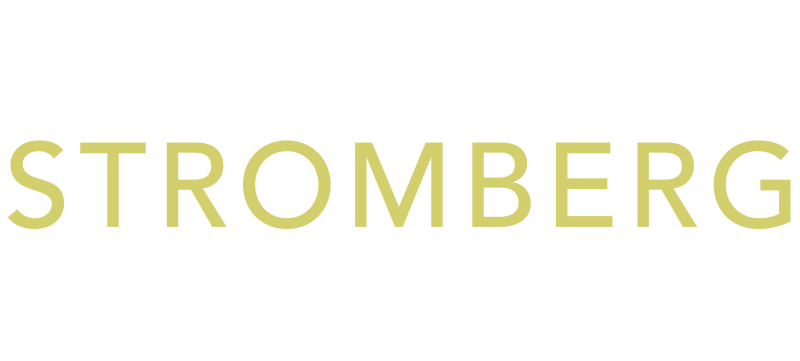Misty Alexandre and Jared Epp jointly presented "Don't Get Burned by Bid Law - Top Tips to Avoid Disqualified Bids" as a Lunch and Learn session for the Saskatoon Construction Association on February 28, 2020. Topics covered included the basic principles of bidding...
Funeral expenses: Why executors should pay them promptly
This article discusses the payment of funeral expenses out of an estate, and why executors should pay them promptly.
The first reason is practical. After death, the funeral home is often the first to provide a service to the estate. It disposes of the body in a safe and respectful manner. As such, the funeral home understandably expects to be paid. To pay this expense promptly will ensure the estate is not later sued for the invoice, and interest charges are not incurred. Moreover, it means there is one less expense for the executors to later deal with.
The second reason to pay promptly, is that the law prioritizes funeral expenses. Almost every will drawn by a lawyer, will include a clause directing the executor “to pay out of and charge to the capital of my general estate my just debts, and funeral and testamentary expenses.”
Thus, the will of a deceased usually expressly requires the estate to pay the funeral expenses. Thus, even in situations where is a dispute over which will is valid, it is very unlikely there will be a dispute over whether it was legitimate to pay funeral expenses. Again, it is simpler to pay those expenses, get them out of the way, and then move on to other issues (like which will is valid etc).
For an example of how the law prioritizes the payment of funeral expenses, we may look to the Alberta decision in Chernichan v. Chernichan Estate, 2001 CarswellAlta 1730, 2001 ABQB 913, [2001] A.J. No. 1429. There, the Court spoke of the “public interest in the prompt and dignified disposal of human remains”, and that the funeral costs should be paid promptly:
[emphasis added]
Even where an estate is insolvent, funeral expenses have a priority among the debts. Indeed, we find this enshrined in s. 46.2 of the Administration of Estates Act, SS 1998, c A-4.1 which says that reasonable funeral expenses are to be paid in priority to virtually all other debts. The provision reads below:
Ranking of debts
46.2 (1) When the assets of an estate are not sufficient to pay all the debts of an estate, the following debts shall be paid proportionately and without any preference or priority of debts of one rank or nature over those of another:
- debts due to the Crown in right of Saskatchewan and to the executor or administrator of the deceased person; and
- unsecured debts.
(2) Reasonable funeral, testamentary and administration expenses are to be paid in priority to the claims mentioned in subsection (1).
(3) Nothing in this section prejudices any lien or charge existing during the lifetime of the deceased on any of the deceased’s property
[emphasis added]
We even find that the federal Bankruptcy and Insolvency Act makes clear that funeral expenses have a priority, where an estate has assigned into bankruptcy:
Priority of claims
136. (1) Subject to the rights of secured creditors, the proceeds realized from the property of a bankrupt shall be applied in priority of payment as follows:
(a) in the case of a deceased bankrupt, the reasonable funeral and testamentary expenses incurred by the legal representative or, in the Province of Quebec, the successors or heirs of the deceased bankrupt;
(b) the costs of administration, in the following order,
- the expenses and fees of any person acting under a direction made under paragraph 4.03(1)(a),
- the expenses and fees of the trustee, and
- legal costs;
[emphasis added]
Thus, there is a super-priority for funeral expenses. In the Chernichan decision referenced above, the Court even held that funeral expenses have a priority even over unpaid taxes owing by the estate. Because the executor, in that case, should have paid the funeral expenses before the taxes (and she did not), she was personally liable to pay any unpaid reasonable funeral expenses.
What if the funeral expenses are unreasonable?
Funeral expenses only have a priority to be paid, to the extent that they are reasonable. We see the qualifying word “reasonable” used in both the Administration of Estates Act, and the Bankruptcy and Insolvency Act.
What then is reasonable? There is some prior guidance from courts, suggesting that the cost of the funeral should be sensible, having regard to the deceased’s financial assets, and other circumstances. Thus, if a deceased died with very little in assets, it is reasonable that their funeral should contain only that is necessary. Indeed, the Chernichan decision held that ‘in insolvent estates only the simplest and most modest tombstones can be charged against the creditors.”
If the executor of a small estate insists on a magnificent and expensive service or headstone, the funeral home should obtain appropriate assurances from the executor (i.e. pre-payment, or a contract stating that the executor will be personally liable to pay the cost, if the estate cannot afford it).
What if the estate bank accounts are frozen?
Some delays in payment are frustrating but legitimate.
In many, even before probate is obtained, a bank will release monies from an account to pay the funeral costs. If an executor says that the bank will not release money to pay the funeral cost, the funeral home should ask the executor to find out why this is.
What about the case of a disputed will, where someone says Will A is valid, and someone argues Will B is valid? In such a case, the bank may be reluctant to deal with any executor until the one true will is determined in a court proceeding (and thus, once this is determined, it will also determine who is the true executor)
Should a will challenge be a good reason to hold up payment of funeral costs? From a common sense perspective, the two conflicting sides should ideally come to a negotiated agreement on the issue of funeral costs. That is, they may agree to immediately pay the funeral costs out of a bank account, on the basis that, regardless of which will is later found to govern, there is no reason the funeral expenses could not be paid in the interim. Of course, the above outcome requires the reasonableness of the two sides, which is never guaranteed in litigation.
What can funeral homes do to ensure they get paid?
If the circumstances of the deceased are complex (i.e. no local family to act as “decision maker” or pursue probate) the only way to guarantee payment is to ask for payment up front, before providing services. One situation which occurs is there the funeral home does the work, but is left holding its unpaid invoice when no family member will take the effort to take steps to administer the estate etc. If the funeral home has evidence before the funeral that this may occur, the funeral home may wish to ask for money upfront.
Second, a funeral home should always make sure that it is obtaining instructions from the true representative of the estate. This is already required in the Funeral and Cremation Services Act, which requires a funeral home to obtain written authorization from the authorized decision-maker, before providing services (see s. 92). This due diligence should ensure that a funeral home does not do a lot of work at the request of person A, only to find out that person B was the true executor.
If a funeral home has tried all reasonable attempts to secure payment of an overdue invoice, they may need to simply sue the estate. If the bill is for less than $30,000, which most will be, you can sue in Small Claims court. However, note that in Small Claims court you cannot recover any legal fees, if you use a lawyer. Also note that, due to limitation periods, you must sue within 2 years of the non-payment. Indeed, when suing estates, the sooner you sue the better, to ensure that estate assets are not distributed out of your reach.
Sometimes the question arises – can a funeral home sue the executor personally, as well as the estate, for unpaid expenses? The executor’s personal money, is separate from the estate’s money. The most reliable way to ensure you can sue an executor personally, is to ensure the executor signs a contract in advance, stating that they are personally liable (in addition to the estate) to pay the funeral home. Not all executors may be willing to sign such a clause however, so you should clarify this before the funeral.
That said, if an estate legitimately incurs a debt to a funeral home, and then later the executor distributes all the assets of the estate before paying the funeral home, that executor may become personally liable. Each situation is unique, and it is recommend to consult a lawyer for specific situations.
Contacting a Lawyer on this Subject
James Steele’s preferred practise area is estate litigation, including will challenges, executor disputes, power of attorney issues, etc. Contact James Steele at 1-306-933-1338 or j.steele@rslaw.com. The above is for general information only, and not legal advice. Parties should always seek legal advice prior to taking action in specific situations.


















